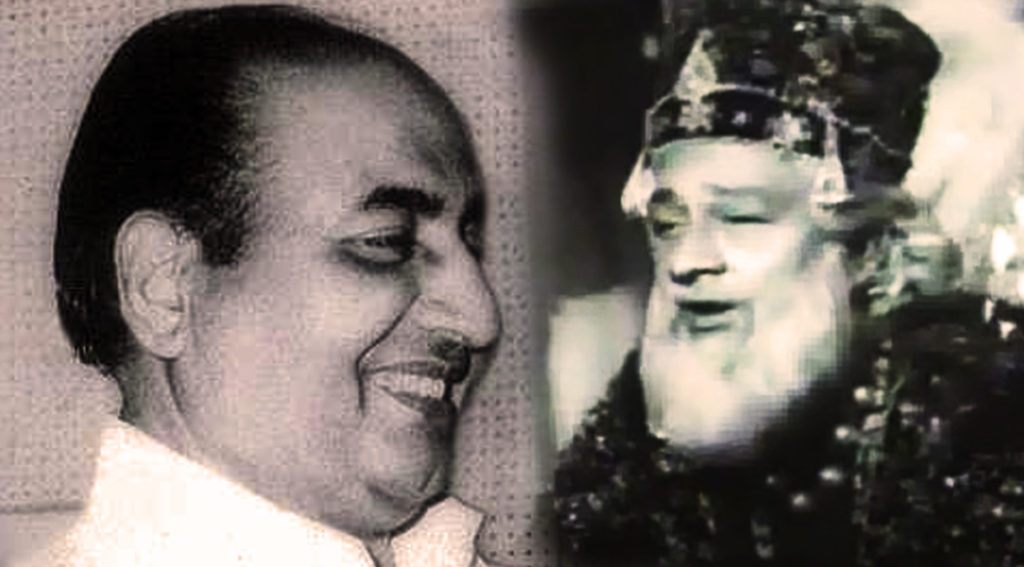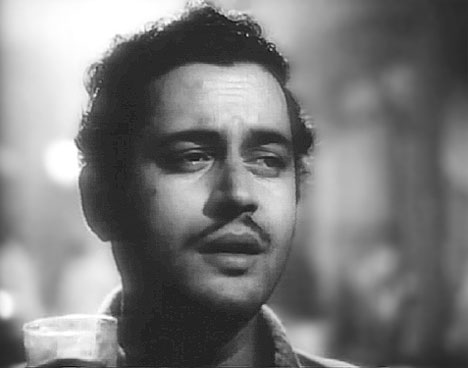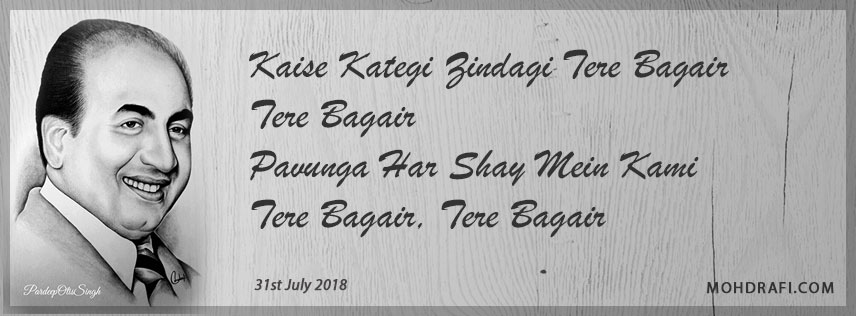Music Less Wonders
By Anmol Singh

In films we have songs that represent a certain situation in the story line. The situation can be of solitude, expressing sadness or conveying a strong message through a powerful poetry presented with a bare minimum use of musical instruments.
To start with lets talk about two songs from film Lal Quila, “Lagtaa Nahi Hai Dil Mera” and “Na Kisi Ki Aankha Ka Noor Hun”. The songs represent the complete isolation of the last ruler of Mughal Empire Bahadur Shah Zafar, after the Mughals were defeated by the British. The loneliness of Bahadur Shah Zafar is expressed with bare minimum use of the music. Rafi Saheb’s voice modulation and variation is incredible. Perhaps this can be considered one of the best works of music composer S N Tripati.
Continuing with sadness we talk about the song “Mein Yeh Sochkar Us Ke Dar Se” from Haqeekat in which the violin is the main instrument played by Pyarelal (LP) under the music direction of Madan Mohan. The song expresses the sadness of the solider in solitude after separation from his beloved. Rafi Sahab deliveries a masterpiece.
Now let’s move on to Guru films which were mostly known to express bitter realities of the materialistic world. We will discuss about two songs. The song “Jine Naaz Hai Hind Par” highlights the bitter realities of the corrupt system penned by Sahir. S D Burman uses bare minimum music to give a strong message to the audience. Rafi Sahab at his best matches Guru Dutt’s on screen image perfectly.

The song “Dekhi Zamane Yaari, Bichde Sabhi Baari Baari”, speaks about the brutal capitalist world which holds us in high esteem us as long as its benefits from us. Once we are worthless, the same world ill treats us. The song which was written by Kaifi Azmi and composed by S D Burman almost more than 60 years ago, represents today’s brutal corporate world perfectly. In the Corporate world when people working under us become our bosses eventually start ill-treating us. The same was represented in the film “Kagaz Ke Phool”, which Guru Dutt a one-time top director who acts as a junior artist in his later years for survival. The song is sung in background by Rafi Sahab with perfect emotions and variations and remains a master piece till date
Let’s analyze the song “Hum Bekhudi Mein” from the film “Kala-Pani”. The seen in the film portrays only two characters, Dev Anand and Nalini Jaywant in a mujra hall with no one around. To express the solitude of two characters on screen S D Burman once again uses bare minimum music and Rafi Sahab does complete justice to Dev Anand’s character.
Lovers need complete isolation and solitude for exchange of deep emotions and feelings. To express solitude again calls for bare minimum use of music and create an atmosphere for perfect emotions of love. We will talk about two incredible gems composed by Madan Mohan. One song “Mere Duniya Mein Tum Aaye” is from the film “Heer Ranja”, which is a perfect expression of whispers. Both Rafi and Lata are in prefect sync with each other doing complete justice to Kafi Azmi’s poetry. Another composition from Madan Mohan is from the film Dastak. The song “Tum Se Kahun Mein Ek” uses bare minimum music to create the perfect romantic atmosphere on screen. Rafi Sahab sings Majrooh poetry with perfect emotions, fetching Madan Mohan a National Award.
Talking about of romance there is another song from the film Aman composed by Shankar Jaikisan. The song “Aaj Ki Raat, Yeh Kaisi Raat” with bare minimum music sung Rafi Sahab is a perfect representation of romantic emotions of Rajender Kumar on screen. The giggles and romantic talk by Saira Banu incorporated in the song electrifies the romantic atmosphere on screen.
The title song from the film “Mere Meboob” sung by Rafi Sahab represents a Mushaira in the college. To provide a perfect onscreen atmosphere to Shakeel’s Ghazal, Naushad composes the song with minimum use of musical instruments. The film makers initially had some apprehensions on the song composition. But the actor Rajender Kumar had full confident in Naushad Sahab. Rest is history. The song from the film Shola Aur Shabnam again uses bare minimum music. The song “Jane Kya Dhundti Hai Aankhen” composed by Khayyam represents the perfect variations with minimum use of music. Only Rafi Sahab could have done complete justice to this song.















Deepika Prahlad Ji,
Thanks for the feedback.
This is a fascinating exploration of a lesser-known aspect of Indian cinema music – the rare instances when a song is performed without any musical accompaniment. The article discusses the challenges and unique opportunities presented by such songs, and how they can showcase the true vocal prowess of a singer.
The article begins by discussing the background of music-less wonders in Indian cinema, and how they were often used to highlight the raw emotions of a character or situation. The article also touches on the technical aspects of creating such songs, and how it requires exceptional vocal control and mastery from the singer.
One of the highlights of the article is the detailed analysis of some of the most iconic music-less songs in Indian cinema history. From “Yeh Mera Diwanapan Hai” sung by Mukesh in “Yahudi” to “Tum Akele To Kabhi Baag Mein” sung by Lata Mangeshkar in “Aao Pyaar Karen”, the article showcases the diverse range of emotions and situations that can be portrayed through music-less songs.
The article also explores the role of the lyricist and the director in creating such songs, and how their vision and creativity can elevate a music-less song to a masterpiece. The article argues that these songs are a true testament to the power of a singer’s voice and how it can evoke raw emotions in the audience.
Overall, Thank you. It is a fascinating article that sheds light on a lesser-known aspect of Indian cinema music. The article showcases the incredible talent of some of the greatest singers in Indian cinema history and their ability to deliver emotional and powerful performances even without musical accompaniment. Fans of Indian cinema music will undoubtedly appreciate the in-depth analysis and insights provided by the author.